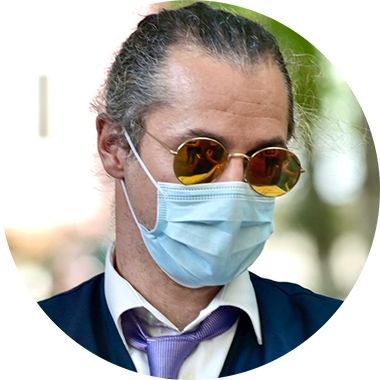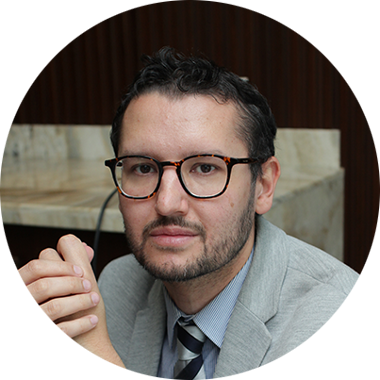
Marie-Roseline Darnycka Belizaire
Country Preparedness & International Health Regulations Officer,
Health Emergencies Programme - Central African Republic Country Office
For 16 years, Marie-Roseline Darnycka Belizaire has been in a never-ending fight against a myriad of diseases, including HIV/AIDS in Haiti, Ebola in West Africa and the Democratic Republic of the Congo, yellow fever in Angola, and Crimean-Congo fever, Rift Valley fever and dengue fever in Mauritania. She currently supports WHO’s response to COVID-19 in the Central African Republic while awaiting deployment to the Tigray region in Ethiopia. Her role is to prepare for and respond to public health threats.
Marie-Roseline works with WHO teams, the Ministry of Health and other partners to build a holistic and integrated emergency preparedness system. She does this by developing contingency plans for identified public health threats and epidemic-prone diseases. She also assists in implementing those contingency plans, including the training of health care workers, establishing community-based surveillance and developing national policies, protocols and stockpiles of emergency materials. “My work is transversal and touches on many different areas,” she says. In her field work she builds trust and gives stewardship to the community, making sure they are involved when implementing processes and ensuring engagement and ownership.
Marie-Roseline grew up in Haiti with chaos and grief around her. “My mother always taught me that my life is nothing if I don’t use it to alleviate the suffering of others,” she recalls. The passing of her mother and little sister confirmed her passion to serve those most vulnerable, and she decided to become a medical doctor after the death of her father. “This passion has always guided my devotion, my career path and my choice of places to work.” Her passion also drives her to be a life-long learner: since completing her medical studies in Cuba, Marie-Roseline has also completed a master’s degree in epidemiological investigation and in public health in Spain. She is continuing her studies to include an MBA, leadership programmes and this year is attending the Leadership, Women and the UN training offered within the UN system. Marie-Roseline has lived and worked in several sub-Saharan countries and has learned how to integrate well into host communities, building gender and cultural bridges and bringing parties together. This has allowed her to touch lives and promote positive change. Service and excellence are the highest values that she carries with her wherever she goes as she constantly strives to make a brighter day for those in pain.
She also notes that her experience and technical expertise help her integrate into each new country and situation. She has learned to work with her national counterparts and to position herself and WHO as leaders in health care, "even when, as I find in some countries, it’s not widely accepted to have women in these roles,” she adds. She consistently fights to break down gender and cultural barriers, leaving a trail of openness behind her. Marie-Roseline appreciates that her job includes these challenges and comments that “seeing the accomplishments against the odds makes the return even better.”She adds, “There is nothing like seeing the joy on the face of community members when celebrating a day with zero Ebola cases, or when survivors return to their community.”
“Working in emergencies demands passion, determination and the ability to work alongside people with diverse occupations, cultures, religions and world views.”;
For Marie-Roseline, working in emergencies with WH has fed her passions and values, but she also confronts plenty of challenges, both in the office and in the field. “Emergency response is often better funded than emergency preparedness because the results are easier to see,” she explains, “yet it is preparedness that will reduce the costs of any emergency.” As a WHO officer in the field, working in a military operational area or a conflict zone is not a choice; it’s part of WHO’s mission to serve the vulnerable. In conflict situations, WHO responders are not only the emergency responders, but can also become the survivors. Her passion sustains her through any fear and keeps her concentrated on the mission. “There is a feeling of pride and honour to serve as a WHO humanitarian worker. I have the courage and passion to serve, despite the risks.” Finding successes in these challenging situations gives her an immensely satisfying feeling of triumph and drives her t want to work harder to raise awareness and foster better donor interest and funding by promoting savings in both cost and human lives that come from proper planning and prevention. Often this means working on ways to prepare for the next emergency while responding to the one at hand.
Marie-Roseline sees clearly that emergency preparedness goes hand in hand with strengthening global health systems. It is the cornerstone of any emergency response. If a country is well prepared, the response to an emergency becomes shorter and the teams can be more effective in saving lives. With COVID-19, the world has witnessed the crucial role that preparedness must have in public health planning – and what happens when it doesn’t. Emergency preparedness preserves life, even during events that we haven’t foreseen. Sound preparedness eases the burden on everyone.


